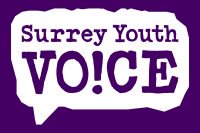What is this guide about?
This is a guide on how to make and ensure board meetings are a safe accessible space for children and young people to be able to actively take part in meetings.
This guide has been co-produced with ATLAS Autism members and is based around this action card:
"As Autistic young people, we would like professionals to ensure that board meetings are accessible and a safe space for us to share our views. Professionals need to know how to listen to people with lived experience.
Making sure resources have screen readers to ensure accessible for meetings."
Tips on how to make board meetings accessible for children and young people:
- Have clear agenda so everyone can stay on topic.
- Don't use acronyms or if you use acronyms explain the terminology to limit confusion.
- Have visuals and set questions.
- If meetings are in person, offer a hybrid option for those not able to attend in person.
- Email a copy of PowerPoint presentations and documents that will be used as this will allow everyone to be able to read at their own pace.
- Make sure resources are accessible and support screen readers.
- If you'd like children and young people to attend organise the meeting in the evening as this is more accessible for young people.
- Give attendees an option to fill in question sheets before the meetings as this allows additional time for processing.
- Include regular screen breaks, this will also allow children and young people to get refreshments.
- If triggering or difficult content is going to be discussed, let the attendees know beforehand and consider if these topics are necessary for the meeting.
- Using polls is an effective way to engage, decide on plans and see visually what everyone is thinking. Polls can be complete anonymously. Mentimeter and Mural are two software examples that can be used.
- If you use a poll feature, explain how to use them as this can be confusing especially with software that a person has not used before.
- Please keep in mind that children and young people are experts by experience, they know what challenges young people might face.
- Please avoid asking direct questions about children and young people's personal experience, make sure your questions are generic and not specific to a young person's experience.
- Understand that young people do not have to answer questions they do not feel comfortable with and that this shouldn't be forced on the young person either.

